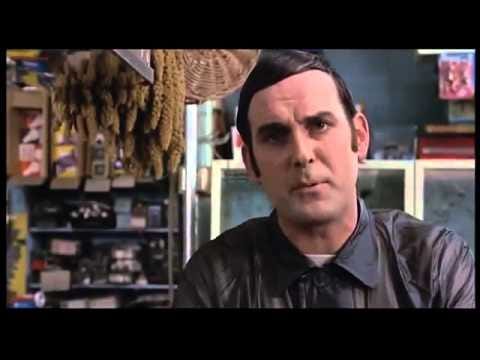Brain training with an ex-parrot
The synonymia is a figure that can temporarily liberate us from our smartphones.
Every discussion of synonyms must begin with the Monty Python dead parrot sketch.
It’s not ‘pinin’! It’s passed on! This parrot is no more! It has ceased to be! It’s expired and gone to meet its maker! This is a late parrot. It’s a stiff! Bereft of life, it rests in peace! If you hadn’t nailed it to the perch it’d be pushing up the daisies! It’s rung down the curtain and joined the choir invisible!! THIS IS AN EX-PARROT!!
You can see a kind of repetition going on here—a common theme of persuasion. Repetition acts in rhetoric the way steroids do for a gym bro, bulking up synapses around an idea. Manipulative hypertrophy, if you will.
In the Monty Python routine, John Cleese deploys the synonymia, a figure of amplification. By flinging out a catalog of synonyms, Cleese turns up the rhetorical volume to create an image of an extremely dead parrot.
Piling on synonyms can also help you convey hyperbolic multitudinousness.
YOU: He was big, huge, linebacker huge, refrigerator huge, double-wide spacious. He was large. He contained multitudes.
To make your own multiple synonyms, just boil down your point (dead parrot) to just one key word (dead), then head to thesaurus.com or your favorite paper version.
Exercise
Try to out-synonym John Cleese. I came up with this:
ME: This parrot has bought the farm. He has checked out. He’s defunct, departed, gone to meet his maker. He is a bygone parrot whose date has expired. He has shuffled off this mortal coil. This former parrot is exsanguinous, spectral, and eternally imperturbable!
Now suppose that at the end of this parrot peroration I said, “Wait. Did it just blink?” The synonymia offers a chance to do a kind of rhetorical head fake, leading the audience in one direction and then ending the thought in another. Joseph Conrad did this in his short story, “The Return.” He piles on the flattery terms of a beauty—more than he really has to—in order to set up a putdown.
She strode like a grenadier, was strong and upright like an obelisk, had a beautiful face, a candid brow, pure eyes, and not a thought of her own in her head.
Multiple synonyms can do the same for you, and not necessarily to deliver an insult. Try describing a terrible movie synonymically.
YOU: “Troy” has color, noise, huge clashing armies, sound and fury, and not a single believable character.
Or you can deliver the opposite emotion by praising a hard character.
YOU: The hike was painful, agonizing, arduous, and the most fun thing I’ve ever done.
The Brain Training Part
But mostly I love the synonymia for the chance to play mental games when I’m driving or on long walks. The figure keeps my adjectives limber. As I walked from the house to my writing cabin the other day, the sky was bright, glimmer-bright, shimmering, clear, limpid.
Switching to nouns: The sun, perched behind me, was a ball, a celestial fire, an eye, a brilliant god.
Then verbs: The late-fall oak leaves hung onto their branches, clattering, clacking, rattling, swinging and bumping against each other like kids in the backseat of a 1970s station wagon.
Yeah, I don’t know where that station wagon came from. Practice the synonymia with others, and it can become competitive. But the end result is better writing, and possibly wittier friends.
Or just practice on the dead parrot. It isn’t going anywhere.




Wonderful and fun examples. I wondered, though, about your intent on the use of "ME:" and "YOU:" before some of the examples. Were those just random choices, or did you have an objective in your pronoun choices that might teach a different rhetoric lesson? When using examples, are there cases where it's best to use first person and second person to convey certain effects? Both seem powerful compared to a generic third person. If too off-topic here, perhaps you could consider this for the content of a future piece.
A further aside, often gets lost as part of that famous parrot sketch, but I love the opening exchange:
Cleese: Miss
Palin (obviously a man): What do you mean 'Miss'?
Cleese: Oh, I'm sorry. I have a cold.